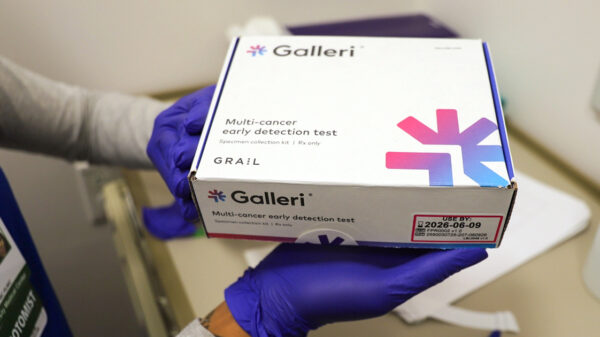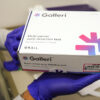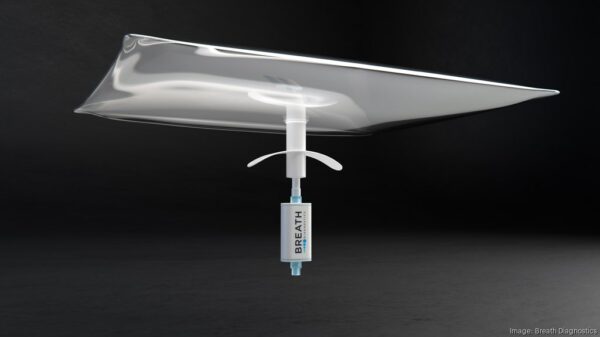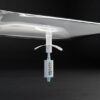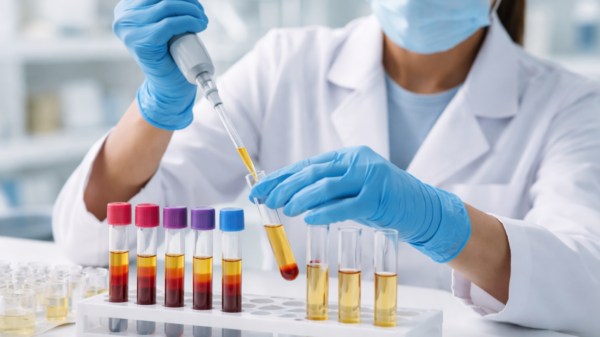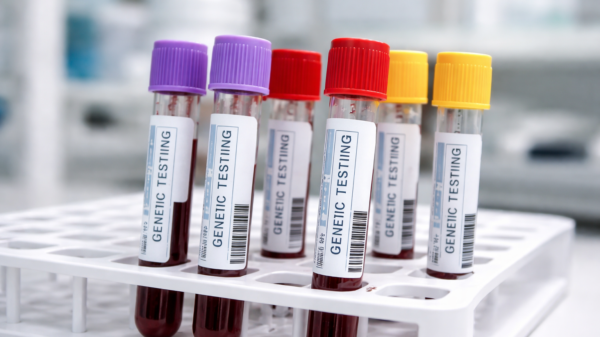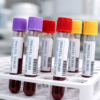Texas-based bioAffinity Technologies Inc (NASDAQ: BIAF) is making its proprietary phlegm/sputum lung cancer test available to veterans across the U.S. through its addition to the nation’s Federal Supply Schedule service.
The U.S. Federal Supply Schedule is a procurement system that provides the Veterans Health Administration (VHA) and Military Health System (MHS) with access to the latest medical equipment and services. The VHA is an integral part of the Department of Veterans Affairs (VA) and the MHS is an internal healthcare system within the American Department of Defense.
bioAffinity’s CyPath Lung test works by getting a test subject to thoroughly rinse out their mouth, take a series of long deep breaths and then cough up mucus from their lungs into a cup. The person providing the sample adds more phlegm to the same cup for three days.
These samples need to be stored in a refrigerator before being sent to a lab. They are then analyzed with a complex scientific process known as flow cytometry. This laser testing technique can detect chemical and physical differences in cells, thereby enabling researchers to detect lung cancer in its early stages.
Veterans are about 25 per cent more likely to contract the disease than others due to their age, tendency to smoke, exposure to hazardous chemicals and other factors. Having widespread access to this test through the VHA and MHS will be beneficial for catching lung cancer in its early stages among military service vets.
Read more: Breath Diagnostics takes aim at lung cancer with One Breath
Read more: Breath Diagnostics pioneers novel lung cancer breath test
Low-dose CT scan gives positive result, CyPath Lung verifies
Although low-dose CT scans are the number one lung cancer diagnostics method in North America, they tend to yield false positives regularly due to how sensitive they are.
Nonetheless, a National Lung Cancer Screening Trial conducted in the U.S. in 2011 determined that this screening method helped reduce lung cancer mortality by 20 per cent. Modern-day AI and machine learning algorithms are helping to make these scans more efficient too.
bioAffinity Technologies says its sputum test can efficiently work in tandem with this pervasive testing method.
“When a low-dose computed tomography scan reveals indeterminate pulmonary nodules, CyPath Lung helps close the gap between a ‘wait and see’ option and an invasive procedure, including biopsy, that may turn out to be unnecessary,” the company explained.
A recent study published in the Journal of Health Economics and Outcomes Research determined that widespread use of the CyPath Lung test could save hundreds of millions of dollars annually in healthcare costs.
“CyPath Lung can result in a total savings of US$2,733 per patient in the Medicare population and US$6,460 per patient in the private commercially insured population,” the study authors concluded.
Other minimally invasive lung cancer screening technology developed recently has the potential to save millions of dollars and countless hours. The OneBreath respiratory test pioneered by Breath Diagnostics Inc. and the ION machine robotic analysis tool developed by Intuitive Surgical, Inc. (NASDAQ: ISRG) are notable examples.
rowan@mugglehead.com







